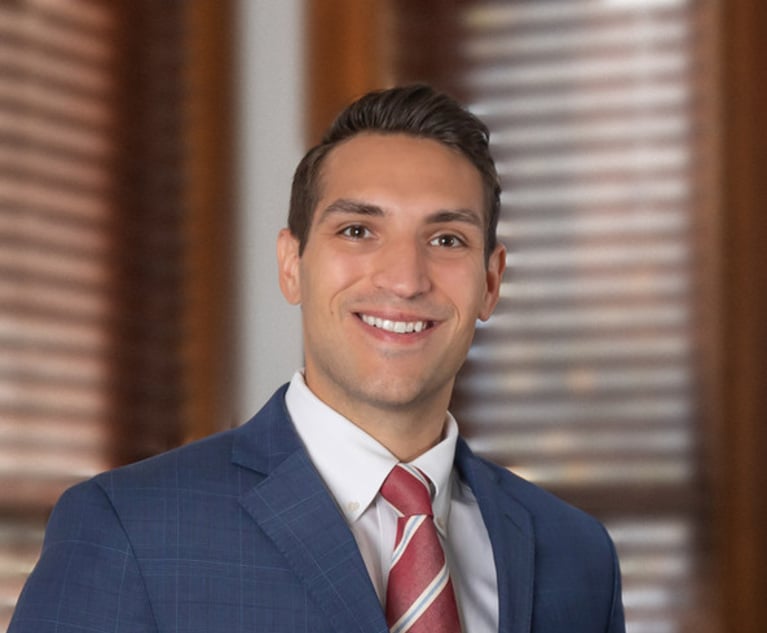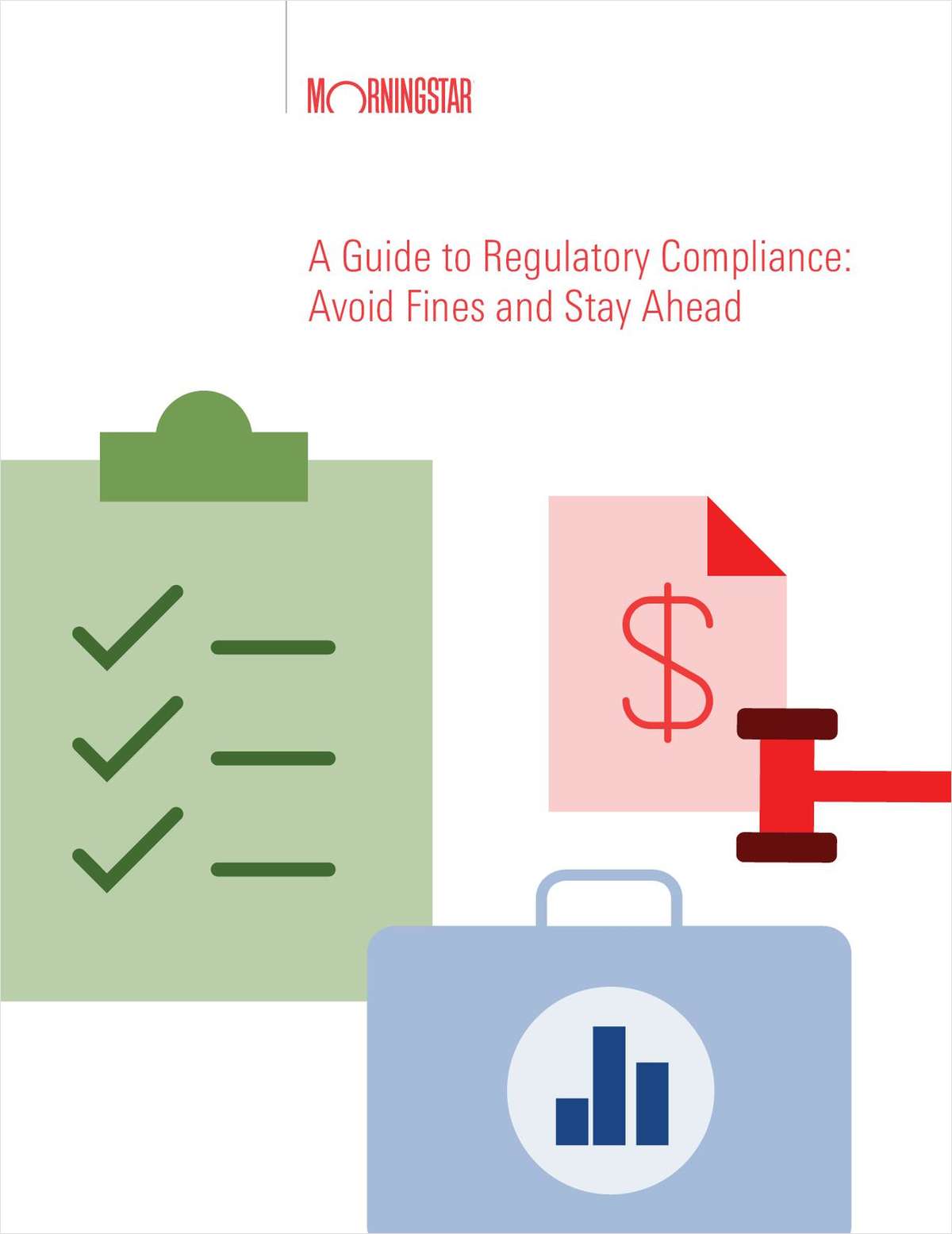 Day Pitney partner Christopher Droney. Courtesy photo
Day Pitney partner Christopher Droney. Courtesy photoFormer Judge Behind Landmark Gay-Marriage Ruling Discusses Trump's Criticism of Judges
Former federal prosecutor, judge, mayor and current Day Pitney partner Christopher Droney discussed President Trump and other topics in a wide-ranging interview Friday.
February 21, 2020 at 02:45 PM
6 minute read
Day Pitney partner and former U.S. Attorney for Connecticut Christopher Droney is adding his voice to the outcry over President Donald Trump's perceived interference in the criminal trial of political consultant Roger Stone.
Droney, a former judge, also weighed in on the president's criticism of judges, and on industry calls for the U.S. attorney general's resignation.
Connecticut's U.S. attorney from 1993-1997, Droney said a letter from more than 2,000 former Department of Justice staffers calling for the resignation of U.S. Attorney General William Barr was unjustified, without first looking at why the Justice Department intervened in the Stone trial.
The case has been especially polarizing, and elicited tweets from the president, who criticized prosecutors' recommendation of the maximum nine-year sentence for Stone. After Trump's tweets, the Justice Department changed direction, and argued that a nine-year sentence would have been too strict. That led the original four prosecutors on the Stone case to quit.
Stone stood trial for witness tampering, obstruction and lying to Congress during special counsel Robert Mueller's investigation into alleged Russian interference in the 2016 elections. He was sentenced Thursday to 40 months in prison.
Now, leaders in the legal community are weighing in.
Droney is a former West Hartford mayor, an ex-judge and a onetime U.S. attorney who returned to his roots Jan. 2—rejoining Day Pitney as a partner after a roughly four-decade career. As a district judge, he authored about 700 opinions, and wrote about 100 more as a jurist for the U.S. Court of Appeals for the Second Circuit.
Droney sat down with the Connecticut Law Tribune to discuss some of the cases he oversaw as a judge, as well as the U.S. president's tweets and behavior. His answers have been edited for news style and clarity.
Connecticut Law Tribune: As a former U.S. attorney for Connecticut, a part of the Department of Justice, what is your view on the recent letter signed on behalf of hundreds of former DOJ employees calling for the resignation of U.S. Attorney General William Barr?
Christopher Droney: The public statement by the president about the potential sentence for Roger Stone was unprecedented, and of great concern to me and so many other former Justice Department officials.
I thought the attorney general appropriately criticized the president for his involvement. That was the most important, and troubling, aspect of this episode. Whether Main Justice was right to weigh in on the requested sentencing guidelines range was also very unusual, and it never happened in Connecticut when I was U.S. attorney.
I am not aware of all of the reasons for that involvement by the Justice Department, and I believe that other officials should look into that part of the sentencing preparation. I think it's unjustified to call for Attorney General Barr's resignation without first examining more deeply why the department intervened.
CLT: You returned to work in Day Pitney's litigation department Jan. 2. The firm is where your private practice began 41 years ago. What has been the biggest impact or change in the litigation world at Big Law during those four decades?
Droney: The biggest change to law practice over those years is the development of technology. We now have access to court decisions and regulatory changes instantaneously. Our communications with other lawyers and clients is also much quicker through email and texts.
It looks to me that these changes have made research and communication so much better. I used to like the quiet seclusion of the library and the books. But I think we and our clients are much better served now.
CLT: You served as a judge for 22 years, both with the U.S. District Court for the District of Connecticut and the U.S. Court of Appeals for the Second Circuit. What was the most emotional case or the one that had the biggest impact on you and why?
Droney: My most difficult case as a trial judge was a sex trafficking case involving many young girls as victims.
Four of the victims testified as to the terrible lives they had when they were being exploited, and it was very difficult for them to recount those horrors, as well for the jury to hear them. It was also very difficult from a legal perspective because it was the first prosecution in the nation involving the then-new federal sex trafficking statutes.
CLT: As a past member of the board of directors of the Federal Judges Association, what is the biggest issue of concern today for federal judges, whether that be criticism from political leaders, workload, stressors of the job or some other area?
Droney: The biggest issue recently for the Federal Judges Association and most of the federal judges was the president's involvement in the Stone sentencing.
I believe that overall, our most important concern has been the criticism of federal judges and their work by the president and others. Our independence is the cornerstone of serving the interests of justice, and it should never be eroded.
The federal judges are not alone in their concern. Just this week the American Bar Association demanded an end to personal attacks on judges and prosecutors.
CLT: While on the U.S. Court of Appeals for the Second Circuit in 2012, you provided the deciding vote in Windsor v. United States, which held that the Equal Protection Clause guaranteed the right of same-sex couples to marry. The U.S. Supreme Court affirmed the ruling 5-4 the next year. Tell us what the deciding factor was for you in casting your vote guaranteeing the right of same-sex couples to marry.
Droney: I thought that it was very obvious that gay people had been the target of discrimination for many years, and just like other protected classes deserved to have state and federal laws affecting them be subject to the same heightened scrutiny that prohibit other types of discrimination. That includes their right to marry and to enjoy the rights of citizens we all enjoy.
Related stories:
This content has been archived. It is available through our partners, LexisNexis® and Bloomberg Law.
To view this content, please continue to their sites.
Not a Lexis Subscriber?
Subscribe Now
Not a Bloomberg Law Subscriber?
Subscribe Now
NOT FOR REPRINT
© 2025 ALM Global, LLC, All Rights Reserved. Request academic re-use from www.copyright.com. All other uses, submit a request to [email protected]. For more information visit Asset & Logo Licensing.
You Might Like
View All
New York-Based Harris Beach Combines With Connecticut-Based Murtha Cullina, Forming NE Powerhouse
3 minute read
Conn. Supreme Court: Workers' Comp Insurance Cancellations Must Be Unambiguous
4 minute read
Trending Stories
- 1Restoring Trust in the Courts Starts in New York
- 2'Pull Back the Curtain': Ex-NFL Players Seek Discovery in Lawsuit Over League's Disability Plan
- 3Tensions Run High at Final Hearing Before Manhattan Congestion Pricing Takes Effect
- 4Improper Removal to Fed. Court Leads to $100K Bill for Blue Cross Blue Shield
- 5Michael Halpern, Beloved Key West Attorney, Dies at 72
Who Got The Work
Michael G. Bongiorno, Andrew Scott Dulberg and Elizabeth E. Driscoll from Wilmer Cutler Pickering Hale and Dorr have stepped in to represent Symbotic Inc., an A.I.-enabled technology platform that focuses on increasing supply chain efficiency, and other defendants in a pending shareholder derivative lawsuit. The case, filed Oct. 2 in Massachusetts District Court by the Brown Law Firm on behalf of Stephen Austen, accuses certain officers and directors of misleading investors in regard to Symbotic's potential for margin growth by failing to disclose that the company was not equipped to timely deploy its systems or manage expenses through project delays. The case, assigned to U.S. District Judge Nathaniel M. Gorton, is 1:24-cv-12522, Austen v. Cohen et al.
Who Got The Work
Edmund Polubinski and Marie Killmond of Davis Polk & Wardwell have entered appearances for data platform software development company MongoDB and other defendants in a pending shareholder derivative lawsuit. The action, filed Oct. 7 in New York Southern District Court by the Brown Law Firm, accuses the company's directors and/or officers of falsely expressing confidence in the company’s restructuring of its sales incentive plan and downplaying the severity of decreases in its upfront commitments. The case is 1:24-cv-07594, Roy v. Ittycheria et al.
Who Got The Work
Amy O. Bruchs and Kurt F. Ellison of Michael Best & Friedrich have entered appearances for Epic Systems Corp. in a pending employment discrimination lawsuit. The suit was filed Sept. 7 in Wisconsin Western District Court by Levine Eisberner LLC and Siri & Glimstad on behalf of a project manager who claims that he was wrongfully terminated after applying for a religious exemption to the defendant's COVID-19 vaccine mandate. The case, assigned to U.S. Magistrate Judge Anita Marie Boor, is 3:24-cv-00630, Secker, Nathan v. Epic Systems Corporation.
Who Got The Work
David X. Sullivan, Thomas J. Finn and Gregory A. Hall from McCarter & English have entered appearances for Sunrun Installation Services in a pending civil rights lawsuit. The complaint was filed Sept. 4 in Connecticut District Court by attorney Robert M. Berke on behalf of former employee George Edward Steins, who was arrested and charged with employing an unregistered home improvement salesperson. The complaint alleges that had Sunrun informed the Connecticut Department of Consumer Protection that the plaintiff's employment had ended in 2017 and that he no longer held Sunrun's home improvement contractor license, he would not have been hit with charges, which were dismissed in May 2024. The case, assigned to U.S. District Judge Jeffrey A. Meyer, is 3:24-cv-01423, Steins v. Sunrun, Inc. et al.
Who Got The Work
Greenberg Traurig shareholder Joshua L. Raskin has entered an appearance for boohoo.com UK Ltd. in a pending patent infringement lawsuit. The suit, filed Sept. 3 in Texas Eastern District Court by Rozier Hardt McDonough on behalf of Alto Dynamics, asserts five patents related to an online shopping platform. The case, assigned to U.S. District Judge Rodney Gilstrap, is 2:24-cv-00719, Alto Dynamics, LLC v. boohoo.com UK Limited.
Featured Firms
Law Offices of Gary Martin Hays & Associates, P.C.
(470) 294-1674
Law Offices of Mark E. Salomone
(857) 444-6468
Smith & Hassler
(713) 739-1250











